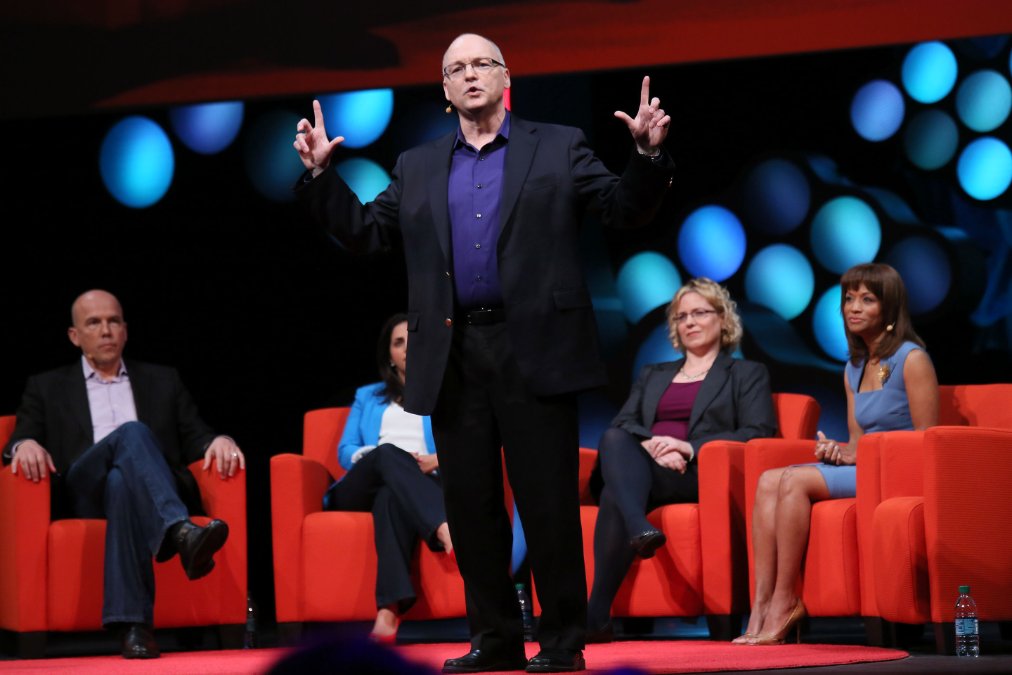In the movie Star Trek soon-to-be Captain Kirk is reprimanded for reprogramming theKobayashi Maru, a no-win battle simulation with those wily rascals the Klingons. In the ensuing drama we are to believe that the authorities have mistakenly labeled the young James T. Kirk as a cheater when in fact he is really a highly original thinker and risk taker who simply redefined the challenge. In the end he saves humanity and all is forgiven. But where do we draw the line between a clever solution that works around the problem and simply gaming the system for our own benefit?
Consider the case of high frequency trading. In best-selling author Michael Lewis’ latest bookFlash Boys: A Wall Street Revolt he suggests “the market is rigged” by a cabal of clever software developers and secretive network providers all financed by an elite group of investment banks. He alleges that by using super high speed computers, esoteric algorithms and proprietary fiber optic networks these über-investors can alter the price of stocks an instant before the uninitiated rabble can execute a trade thus profiting by taking a percentage of what would otherwise be our good fortune.
Most stock exchanges have a bevy of rules regarding insider-trading. That is, getting information before it’s available to the general public and profiting from the purchase or sale of stocks and bonds or as it more commonly known as the Martha Stewart Maneuver. But there is no rule at present for outsmarting the system. The FBI is currently investigating these high frequency trading practices but legal scholars are doubtful if they can prove them to be illegal. Their morality is another issue. Apparently all is fair in love, war and commercial avarice.
I like to tell my students that there are no good or bad approaches to innovation, only good or bad people who use them. I still believe that’s the case. Rules are made by incumbents and broken by upstarts and outcasts. Evolutionary biologists are quick to point out that minor fluctuations in the ecosystem, and presumably economic as well, that upset the general equilibrium are typically followed by ever greater variation until the system either collapses or morphs into a higher order configuration. In other words, the real dilemma of high frequency trading is yet to come whenever more radical solutions are introduced by those completely outside of the system and make trading stocks untenable or even irrelevant. Think about howWikiLeaks, bitcoins and malware confound the institutional bearing of security agencies, tax collectors and systems operators and you get the point. One can only guess what imaginative solution Cadet Kirk would employ to disrupt these high frequency trading systems.
In their study entitled “The Dark Side of Creativity: Original Thinkers Can Be More Dishonest”, Harvard professor Francesca Gino and Duke professor Dan Ariely surmise that a creative personality is a predictor of dishonest and unethical behavior. One of the main assertions is that while divergent thinking is effective in probing the boundaries of a challenge to find a novel solution it also increases the likelihood that it will violate accepted rules, norms and esprit de corps. From this vantage point, certain types of innovation aimed at getting around socially prescribed and accepted precepts and ordinances is indeed a form cheating. The irony is of course that at its core creative thinking is a cognitive inquiry strategy aimed at producing variation and ultimately useful novelty. “If you can’t join them, beat them” is the innovator’s maxim.
There will always be an unfair playing field, asymmetrical information and superior technology working against you. Rules are made by the rulers. However, the house doesn’t always win because they have too much to lose by changing the game too much. You can write your congressman or occupy the administration building or even incite the revolution and little will change but create a radical alternative way of governing, investing or living and you will be accused of cheating. You won’t be doing anything substantively different than our powerful friends who bend the system their way. You will just be doing it without them. When you out innovate the innovators you may well be deemed a cheater like Captain Kirk. But then again you might just save the day.
So is innovation cheating? Only if you boldly go where no one has gone before.

Jeff DeGraff is the Dean of Innovation – an author, speaker, and advisor to Fortune 500 companies and mission-driven organizations worldwide. He’s the CEO and Founder of Innovatrium, Founder of Intellectual Edge Alliance, and Clinical Professor of Management and Organizations at the Ross School of Business at the University of Michigan. Jeff co-created the Competing Values Framework and developed the Innovation Code and Innovation Genome methodologies which provide organizations with practical tools to reconcile competing priorities and drive breakthrough performance. His mission is the democratization of innovation: making systematic innovation accessible to everyone, everywhere, every day.
